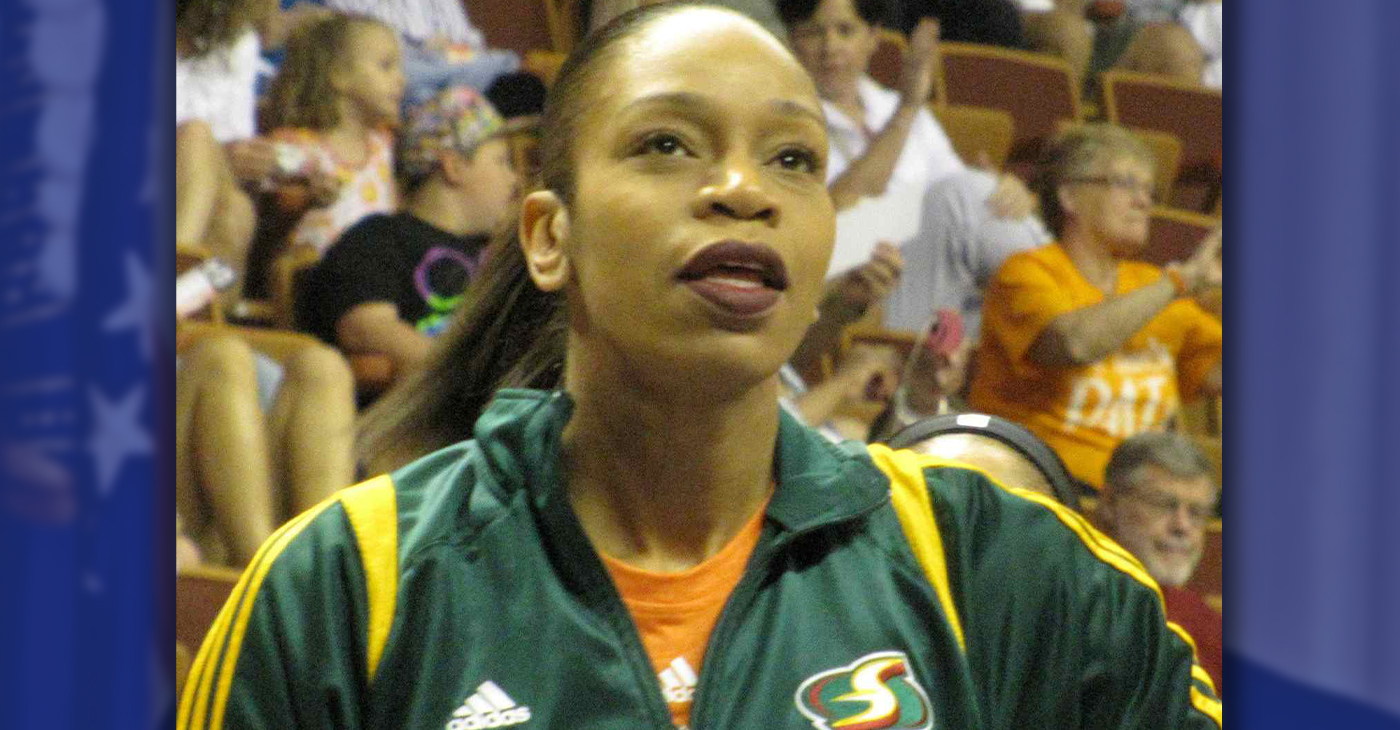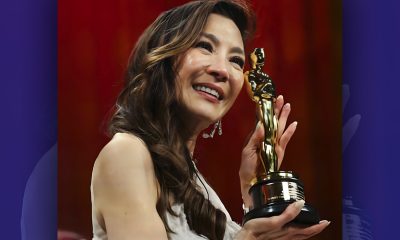Entertainment
AP Exclusive: Academy President Responds to Twitter Firestorm

In this Feb. 19, 2014 file photo, Cheryl Boone Isaacs, president of the Academy of Motion Picture Arts and Sciences, poses for a portrait in Los Angeles. (Chris Pizzello/Invision/AP, File)
Sandy Cohen, ASSOCIATED PRESS
LOS ANGELES (AP) — Responding for the first time to the firestorm of criticism over the lack of diversity in this year’s Oscar nominations, film academy president Cheryl Boone Isaacs says the all-white acting slate inspires her to accelerate the academy’s push to be more inclusive. She also hopes the film industry as a whole will continue to strive for greater diversity.
The first black president of the Academy of Motion Picture Arts and Sciences spoke out Friday night in an exclusive interview with The Associated Press about the Oscar nominations and the widespread criticism that followed.
All 20 of this year’s acting contenders are white and there are no women in the directing or writing categories. After the nominations were announced Thursday morning, the hashtag #OscarsSoWhite started trending on Twitter.
The Asian Pacific American Media Coalition issued a statement Friday saying the nominations balloting “obviously reflects a lack of diversity in Oscar voters as well as in films generally.”
Yet Boone Isaacs insisted the academy is “committed to seeking out diversity of voice and opinion” and that outreach to women and artists of color is a major focus.
“In the last two years, we’ve made greater strides than we ever have in the past toward becoming a more diverse and inclusive organization through admitting new members and more inclusive classes of members,” Boone Isaacs said. “And, personally, I would love to see and look forward to see a greater cultural diversity among all our nominees in all of our categories.”
A 2012 survey by the Los Angeles Times found the academy was 94 percent white, overwhelmingly male and with a median age of 62. A more recent survey determined the percentage of older white males had dropped by one point, the Times said. But with nearly 7,000 members and no requirement to retire, diversity is going to take some time.
Boone Isaacs declined to address whether she and the academy were embarrassed by the slate of white Oscar nominees, instead insisting that she’s proud of the nominees, all of whom deserved recognition.
She explained that while each branch comes up with its own criteria for excellence and each nominates its colleagues, all voting is individual and confidential.
For instance, only directors can suggest best director nominees and only actors can nominate actors. But the entire academy membership can submit suggestions for best picture.
“There is not one central body or group of people that sit around the table and come up with nominations,” she said. “It really is a peer-to-peer process.”
With all the accolades the civil rights drama “Selma” has received since its Christmas opening, some felt its failure to garner nominations for director Ava DuVernay or star David Oyelowo reflected a racial bias.
“What is important not to lose sight of is that ‘Selma,’ which is a fantastic motion picture, was nominated for best picture this year, and the best picture category is voted on by the entire membership of around 7,000 people,” Boone Isaacs said.
Besides best picture, the film received just one additional nod — for original song — in what was widely viewed as a significant snub. But fans shouldn’t feel that way, she said: “It’s nominated for the Oscar for best picture. It’s an award that showcases the talent of everyone involved in the production of the movie ‘Selma.'”
Boone Isaacs says the five best actor nominees — Bradley Cooper (“American Sniper”), Steve Carell (“Foxcatcher”), Benedict Cumberbatch (“The Imitation Game”), Eddie Redmayne (“The Theory of Everything”) and Michael Keaton (“Birdman”) — “are all at the top of their game.”
“There are quite a few actors this year at the top of their game,” she said. “There are five nominees and this year, these were the five.”
Diversity outreach is spread among the academy’s 17 branches, she said, since existing members recruit new ones.
“This is a membership organization, so we are all involved in this discussion and moving the subject of diversity forward,” she said. “It’s very important for us to continue to make strides to increase our membership and the recognition of talent.”
In its Friday statement, the Asian Pacific coalition said the responsibility for diversity in film should be industry-wide.
“It behooves Hollywood — as an economic imperative, if not a moral one — to begin more closely reflecting the changing face of America,” the statement said.
Boone Isaacs agrees, saying that as the academy “continues to make strides toward becoming a more diverse and inclusive organization, we hope the film industry will also make strides toward becoming more diverse and inclusive.”
Though she repeatedly stressed the Oscars are a competitive process and that she’s proud of the year’s nominees, Boone Isaacs acknowledged that diversity needs to be mandatory in both story and storyteller.
“It matters that we pay attention to, again, the diversity of voice and opinion and experience, and that it doesn’t slide, it doesn’t slide anywhere except for forward,” she said. “And maybe this year is more just about let’s kick it in even more.”
___
Follow AP Entertainment Writer Sandy Cohen at www.twitter.com/APSandy.
Copyright 2015 The Associated Press. All rights reserved. This material may not be published, broadcast, rewritten or redistributed.
###
Activism
Oakland Post: Week of January 8 – 14, 2025
The printed Weekly Edition of the Oakland Post: Week of January 8 – 14, 2025

To enlarge your view of this issue, use the slider, magnifying glass icon or full page icon in the lower right corner of the browser window.
Activism
2024 in Review: 7 Questions for California Black Chamber of Commerce CEO Jay King
Jay King is also a member of the popular 1980s R&B group Club Nouveau. In his role as an artist and activist, he has stood up for issues affecting underrepresented Californians for over three decades. As the President of the CBCC, King says he is determined to put his mark on developing and expanding the capacity of African American businessmen and women.

By Edward Henderson, California Black Media
Grammy Award-winning singer and record label executive, Jay King, was elected CEO/President of the California Black Chamber of Commerce (CBCC) in June of 2019.
The CBCC is the largest African American non-profit business organization, representing thousands of small and emerging businesses, affiliates, and chambers of commerce throughout California.
King is also a member of the popular 1980s R&B group Club Nouveau. In his role as an artist and activist, he has stood up for issues affecting underrepresented Californians for over three decades.
As the President of the CBCC, King says he is determined to put his mark on developing and expanding the capacity of African American businessmen and women.
California Black Media (CBM) spoke with King recently. He reflected on the Chamber’s accomplishments, disappointments, lessons learned this year, and goals moving forward.
Looking back at 2024, what stands out as your most important achievement and why?
Making the voices of micro and mini-micro businesses loud, forcing policymakers and other decision makers across the state to pay attention to them. With legislation in place now — AB 1574 and AB 2019 – that mandates that the state and agencies affiliated with the state extend opportunities to micro and mini business owners and give them a chance to participate in government contracting in a real way.
How did your leadership and investments contribute to improving the lives of Black Californians?
I really want to contribute to the world and the state of Black businesses because of the systemic inequities in the past.
Small business, micro businesses and mini businesses are too often overlooked.
I think it would be egotistical to believe that I make any significant impact on my own. Whether it’s the Asian Chamber, Hispanic Chamber and other organizations that are fighting the same fight. I think it’s a collective, so I’m proud to be part of the collective.
What frustrated you the most over the last year?
We say we want to give access to capital to small businesses, yet we continue to create barriers that deny them access.
What inspired you the most over the last year?
Watching some of the small business owners that we worked with — these micro businesses — and seeing the potential and the power that is in front of us.
What is one lesson you learned in 2024 that will inform your decision-making next year?
We have to fight for Black business owners, but they also have to be prepared; because if they’re not, it affects us all down the line.
In one word, what is the biggest challenge Black Californians face?
Self-belief. I think we have been conditioned on victimization and victimhood. We think that if we don’t get the help we need that we will falter.
What is the goal you want to achieve most in 2025?
I want to change the trajectory of micro and mini business owners.
Bay Area
Tina Thompson: Champion, Legend, and Pioneer of Women’s Basketball
Known for her signature red lipstick, Thompson displayed confidence and style on the court, becoming an icon both for her gameplay and her individuality. Her ability to score from anywhere on the floor, combined with her defensive prowess, made her one of the league’s most formidable players.

By Tamara Shiloh
The establishment of the Women’s National Basketball Association (WNBA) in 1996 was a turning point for women’s sports, creating a professional platform for female basketball players to showcase their skills at the highest level. Among the trailblazers who helped launch the league, Tina Thompson stands out as the first African American woman drafted into the WNBA.
Tina Thompson was born on February 10, 1975, in Los Angeles, California. Raised in a basketball-loving household, she quickly developed a passion for the game. Thompson improved her skills on the playgrounds of South Central Los Angeles, often playing against boys, which toughened her game and fueled her competitive edge.
She attended the University of Southern California (USC), where she became a standout player for the Trojans. Known for her versatility, scoring ability, and relentless work ethic, she earned All-Pac-10 honors multiple times and cemented her reputation as one of the top collegiate players in the nation.
When the WNBA held its first-ever draft on April 28, 1997, Tina Thompson made history as the league’s first African American player to be drafted. Selected as the first overall pick by the Houston Comets, she joined a team that would go on to dominate the early years of the WNBA.
Tina’s selection was a historic moment, symbolizing the league’s commitment to showcasing diverse talent. As a Black woman in a pioneering role, Thompson carried the hopes of aspiring African American female athletes who dreamed of playing professional basketball.
Tina wasted no time making an impact in the WNBA. As a key member of the Houston Comets alongside legends Cynthia Cooper and Sheryl Swoopes, she helped lead the team to an unprecedented four consecutive championships from 1997 to 2000. The Comets’ dynasty became the gold standard for excellence in the league’s early years.
Known for her signature red lipstick, Thompson displayed confidence and style on the court, becoming an icon both for her gameplay and her individuality. Her ability to score from anywhere on the floor, combined with her defensive prowess, made her one of the league’s most formidable players.
Over a career spanning 17 seasons, Tina established herself as one of the WNBA’s all-time greats. She retired as the league’s leading scorer, a record she held until it was broken by Diana Taurasi. She was a nine-time WNBA All-Star and was named to multiple All-WNBA teams, cementing her status as one of the sport’s legends.
In 2018, Thompson’s contributions to basketball were recognized with her induction into the Naismith Memorial Basketball Hall of Fame. The honor underscored her influence not just as a player, but as a trailblazer for African American women in sports.
After retiring from professional basketball, she transitioned into coaching, using her experience and knowledge to mentor young athletes. She has served as a head coach at the collegiate level, inspiring the next generation of players to pursue excellence both on and off the court.
As a role model and advocate, Thompson has consistently emphasized the importance of education, empowerment, and self-belief. Her story resonates with countless young women who see in her the embodiment of perseverance and success.
Tina Thompson is presently in her third season as an assistant coach at the University of Texas at Austin.
-

 Activism3 weeks ago
Activism3 weeks agoBooks for Ghana
-

 Arts and Culture4 weeks ago
Arts and Culture4 weeks agoPromise Marks Performs Songs of Etta James in One-Woman Show, “A Sunday Kind of Love” at the Black Repertory Theater in Berkeley
-

 Bay Area3 weeks ago
Bay Area3 weeks agoGlydways Breaking Ground on 14-Acre Demonstration Facility at Hilltop Mall
-

 Activism4 weeks ago
Activism4 weeks ago‘Donald Trump Is Not a God:’ Rep. Bennie Thompson Blasts Trump’s Call to Jail Him
-

 Arts and Culture3 weeks ago
Arts and Culture3 weeks agoIn ‘Affrilachia: Testimonies,’ Puts Blacks in Appalacia on the Map
-

 Activism3 weeks ago
Activism3 weeks agoLiving His Legacy: The Late Oscar Wright’s “Village” Vows to Inherit Activist’s Commitment to Education
-

 Alameda County3 weeks ago
Alameda County3 weeks agoAC Transit Holiday Bus Offering Free Rides Since 1963
-

 #NNPA BlackPress4 weeks ago
#NNPA BlackPress4 weeks agoCalifornia, Districts Try to Recruit and Retain Black Teachers; Advocates Say More Should Be Done



















































